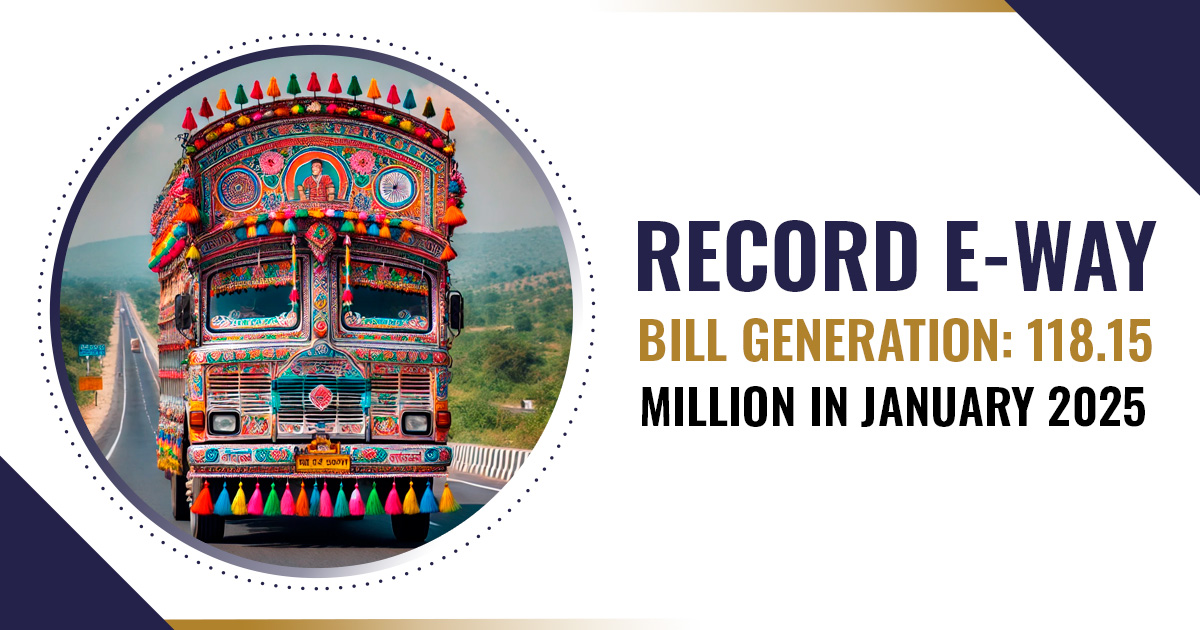
According to data from the Goods and Services Tax Network (GSTN) The number of e-way bills generated in January 2025 reached an all-time high of 118.15 million as notified by Informist. It shows a 5.5% rise from 112.02 million e-way bills generated in December 2024, which was the highest in the previous two years.
E-Way Bills: A Key Indicator of Economic Activity
Transporters are required to create an electronic document known as an e-way bill for any shipments valued over INR 50,000 under the Goods and Services Tax (GST) system. The increase in the number of e-way bills being generated indicates a boost in business activities and improved economic conditions.
The updated numbers in comparison to January 2024 show a 23.1% year-on-year rise emphasizing the resilience of the Indian economy. The increase in e-way bills has led to a boost in GST collections, which went up by 12.3% compared to the previous year, reaching ₹1.96 trillion in January 2025.
Amendments Affecting E-way Bills
In January 2025 two major statutory amendments came into force in January 2025 to rectify the compliance and curb tax evasion-
- Limitations on Backdated Invoice Issuance: Transporters can no longer generate GST e-way bills using base documents older than 180 days, preventing tax invoice backdating and bogus claims.
- Limit on E-Way Bill Extension Period: The maximum extension duration for an e-way bill is capped at 360 days from the generation date, restricting indefinite extensions and ensuring timely goods movement.
Such amendments are anticipated to draw effective transparency and efficiency in GST compliance ensuring that the businesses would comply with the genuine invoicing and timely transportation of goods.
Viewpoint for February and Beyond
The trend with GST collections successively rising and e-way bill generation at record highs shows a robust demand and surged trade activity. The experts expect that if the same momentum carries on then the GST revenues may surge furnishing fiscal stability and supporting India’s economic expansion.
To prevent penalties the businesses need to stay updated with the e-way bill norms and ensure the facilitated logistics operations.